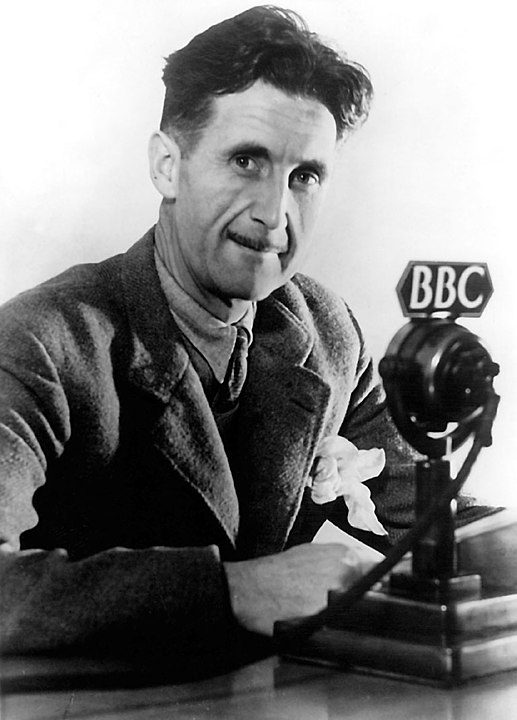Last week we blogged about George Orwell’s 1984 and its applicability today. But even more applicable is his classic essay Politics and the English Language.
All voters need to read this essay in order to see through the rhetoric of our politicians and opinion-makers! You can read it free online or for 99 cents on Kindle.
In the essay, Orwell analyzes examples of modern political rhetoric and shows how its purpose is to manipulate thought and to hide truth, rather than reveal it. Yes, all parties can be guilty of this, but the essay, first published in 1946, focuses on totalitarian politics, both that of Hitler and that of Stalin. But Orwell also finds the same style in “free countries,” such as his native England and America.
After dissecting bad writing in general (in a way that will help your own writing) and why this anti-style is dominant in officialdom, Orwell examines actual samples of what he is referring to. But here is his bottom line (my bolds):
In our time, political speech and writing are largely the defence of the indefensible. Things like the continuance of British rule in India, the Russian purges and deportations, the dropping of the atom bombs on Japan, can indeed be defended, but only by arguments which are too brutal for most people to face, and which do not square with the professed aims of political parties. Thus political language has to consist largely of euphemism, question-begging and sheer cloudy vagueness. Defenceless villages are bombarded from the air, the inhabitants driven out into the countryside, the cattle machine-gunned, the huts set on fire with incendiary bullets: this is called pacification. Millions of peasants are robbed of their farms and sent trudging along the roads with no more than they can carry: this is called transfer of population or rectification of frontiers. People are imprisoned for years without trial, or shot in the back of the neck or sent to die of scurvy in Arctic lumber camps: this is called elimination of unreliable elements. Such phraseology is needed if one wants to name things without calling up mental pictures of them.
The supreme example has long been the rhetoric of abortion advocates. They certainly do not want to call up mental pictures–or actual pictures, for that matter–of what an abortion is and what it does. But as the vague phraseology becomes common, it too starts conjuring up images, so new terms are always being invented, as yesterday’s post demonstrates.
Tearing into pieces a baby developing in the womb becomes first the more abstract medical procedure “abortion,” and then “terminating a pregnancy.” But then to “terminate” became recognized as a euphemism for “assassinate,” so the vocabulary shifted to words that carry a positive connotation: “Choice,” though as we blogged yesterday, the language of choice has been deemed racist and judgmental, so the word police are attempting to give “abortion” a good connotation (“abortion is a good thing”)–an effort that will surely fail, since the connotations of a word cannot be determined by dictate. The politicians are probably on a more effective track when they propose calling abortion just “healthcare.”
As Orwell recommends, watch for examples of “euphemism,” in which something negative is spoken of using words with a positive connotation. (Who could possibly be opposed to “healthcare”?)
Watch for examples of “question-begging,” avoiding the question at issue with language assuming that it is already answered. (Should there be conscience exemptions for doctors and nurses who do not believe in abortion? Leave their conscience out of it by cracking down on their “refusal of care.”
Watch for examples of “sheer cloudy vagueness.” As in all attempts to dehumanize the being in the mother’s womb (“fetal material”).
Photo: George Orwell by BBC – http://www.penguinbooksindia.com/en/content/george-orwell, Public Domain, https://commons.wikimedia.org/w/index.php?curid=36943233













